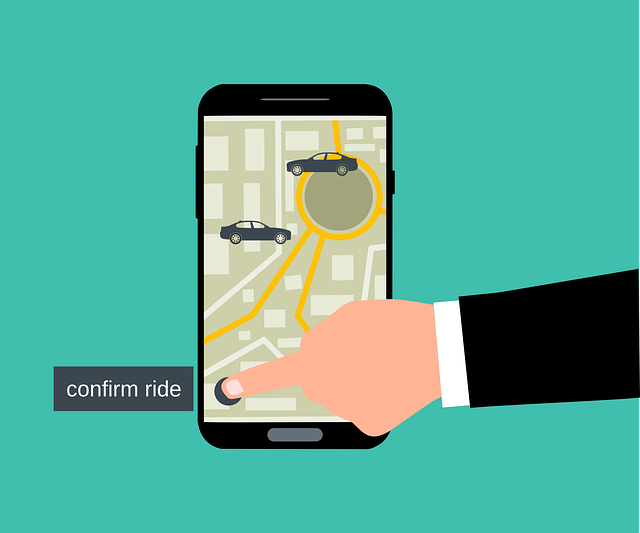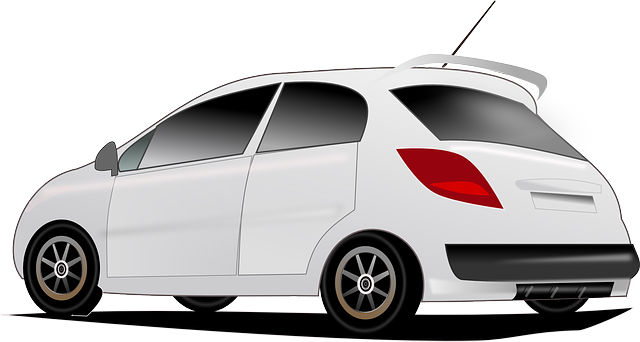The rise of ride-hailing platforms like Uber has transformed the landscape of the transportation industry. However, for those contemplating becoming a driver, the question often pops up: "Is Uber considered commercial use for your car?" Let's delve deeper into this subject and provide a comprehensive answer. Before we jump into the Uber-specific discussion, we need to first understand what 'commercial use' of a vehicle entails.

Definition and Understanding of Commercial Use
In general terms, commercial use refers to utilizing a vehicle for business purposes. This could mean delivering goods or ferrying people in exchange for monetary compensation.
Implications and Consequences of Commercial Use
Commercial use of a vehicle tends to result in higher insurance premiums because it's associated with additional coverage and an increased level of risk. This additional coverage is due to the likelihood of more time on the road and thus a higher chance of accidents.
Do You Need a Commercial License?
If you're driving a commercial vehicle, does that mean you need a commercial driver's license? Under normal circumstances, commercial vehicle law would say yes. Commercial driver's licenses are often required to drive vehicles such as buses, trucks, and other common commercial vehicles.
Obtaining a commercial driver's license is also more difficult, requiring a wider array of tests to be passed and requiring more money to apply. Taking a commercial driver's license test class can take up to several months.
However, this isn't always the case, and it generally isn't the case when it comes to Uber. You'll be relieved to know that under the current laws, you do not need a commercial driver's license to drive for the rideshare giant.
All you need to work for Uber is your normal driver's license, the same driver's license photo or one of driver profile photo you already have in your possession. This makes it easy for new drivers to sign up, and it's one of the reasons that rideshare employment has been so popular.
Most employees only have to use what they already have in order to get started.

Commercial Vehicles & Accidents
Why is your designation as a commercial vehicle important? For one, it impacts how the aftermath of an accident will play out.
Unfortunately, a a rideshare company or vehicle can get into an accident just as any other kind licensed driving experience or of vehicle can. In fact, there are thousands of these rideshare drivers in accidents a day. They are quite common.
Where things differ when it comes to these kinds of accidents is the burden of liability. After all, there can be many different people involved in this kind of accident. There is the rideshare drivers' driver themselves driving license them, the rideshare drivers' driver app passenger driving record them, and the driver and passenger of the other vehicle.
That's not even mentioning the possibility of injured bystanders and pedestrians.
Uber maintains a $1 million dollar liability policy, which means anyone injured in an accident involving transportation company or their drivers could obtain special insurance payment up to this amount. For this insurance payout to work, the vehicle in covered accident in question must be considered a commercial vehicle.
How does it all work? Uber generally bases their insurance access based on the driver's usage of the Uber app. When a driver is behind the wheel with the app off, they are relying solely on their own personal insurance.
When a driver turns the app on, they'll receive some supplemental insurance from the rideshare company. When they accept a third party liability ride request and pick up a passenger, they will then have a right to the full extent of the third party liability insurance provided by the rideshare company: $1 million coverage.
All insurance provided to independent contractor and by Uber is considered supplemental or comprehensive coverage to personal policies, and claims first must be made through the individual personal insurance policies. This is because drivers are independent contractors and not employees.
State by State Situations
The topic of rideshare coverage for accidents is still generally new, and states are still adjusting and creating laws based on local laws and the concept of rideshare coverage. In New York, for example, Uber drivers will now be required to get a commercial driver's license due to an increased number of accidents on the roadways.
A Glimpse into the Uber Business Model
Uber, undeniably a trailblazer in the transportation sector, has a unique business model. So, how does it function, and what has been its impact on the industry?

The Mechanism of Uber's Operations
At its core, Uber operates by bridging the gap between riders and drivers through its highly intuitive app. Riders place requests for rides, and drivers, armed with their personal vehicles, fulfill these requests for a predetermined fee.
The Effect of Uber on the Global Transport Industry
Uber's entry into the market has dramatically increased the accessibility and affordability of rides, shaking up the traditional taxi industry. However, it has also brought about regulatory scrutiny and raised questions about insurance and liability coverage for both rideshare companies and drivers.
The Intersection of Uber and Commercial Use
Now, onto the central question. Is providing rideshare services with your personal vehicle through Uber considered commercial use?
Uber's Stance on Commercial Use
As per Uber's own regulations standpoint, using your personal car to provide rideshare services does indeed fall under the umbrella of commercial use, given you're providing a service in exchange for payment.
The Legal Perspective and Insurance Considerations
The Part Personal Auto Insurance Plays
Most personal auto insurance policies do not cover commercial driver activities. This means you could find yourself without any comprehensive and collision coverage or insurance comprehensive and collision coverage either, if you were to have an accident while driving for Uber drivers.
Understanding Uber's Insurance Policy
Uber does offer a commercial insurance policy to its drivers. However, it's an insurance is not as straightforward insurance as it seems. There are conditions and limits that apply to this commercial auto insurance policy for other drivers, which could lead to potential gaps in insurance coverage, leaving drivers vulnerable bodily injury in certain scenarios.
Weighing the Pros and Cons of Using Your Car for Uber
Whether you're considering driving for Uber as a side gig or contemplating it as a full-time job, it's important to weigh the pros and cons. Using your personal car for a drive with Uber can provide various benefits, but it also comes with its fair share of drawbacks.
The Perks of Being an Uber Driver
Flexible Income and Schedule: One of the most attractive aspects of driving for Uber is the flexibility it offers. You can set your own schedule and work as much or as little as you want. This makes it an excellent option for those looking for a secondary income source or those who prefer a job with non-traditional hours.
Being Your Own Boss: Driving for Uber means you're essentially self-employed. You can decide when you want to work, where you want to work, and how long you want to work each day.
Meeting New People: If you're a people person, driving for Uber can be a great opportunity. You'll meet people from all walks of life, which can make your workday interesting and diverse.
The Potential Downsides and Risks of Driving for Uber
Increased Wear and Tear: Using your car for Uber will inevitably lead to increased wear and tear on rental car. More time on the road means more maintenance, more frequent servicing, and potentially, more costly repairs. This can be a significant long-term cost that you need to factor into your earnings.
Insurance and Liability: As we've discussed, driving for Uber is considered commercial use of your vehicle, which can complicate your personal policy and commercial insurance, situation. Personal auto insurance policies generally do not cover commercial activities, and while Uber does provide a commercial insurance policy, there can be gaps in coverage. Understanding these nuances of personal injury protection and commercial insurance protection and ensuring you're adequately protected from covered accident is crucial.
Unpredictable Income: While having the flexibility to work whenever you want is a perk, it also means your income can be inconsistent. Earnings can fluctuate based on factors such as the time of day, the day of the week, and the area in which you're driving.
Dealing with Difficult Passengers: While meeting new people can be a positive, there's also a chance you'll encounter difficult passengers. This can add stress to your workday and make the job less enjoyable.
Safeguarding Your Interests When Driving for Uber
Becoming an Uber driver's car, can be a rewarding experience, but it's essential to safeguard your interests. Here's how you can do so:
Understand Your Rights and Responsibilities: As an Uber driver, you're essentially a contractor for the company, not an employee. Be clear about what this means in terms of your rights, benefits, and responsibilities. This includes understanding your obligations concerning taxes, as you'll be responsible for reporting your income and paying any owed taxes.
Keep Accurate Records: Maintain a detailed record of your driving-related expenses, including gas, car maintenance, costs special insurance, and insurance. This will not only help you understand your real earnings but also prove invaluable for tax purposes.
Customer Service Skills: As an Uber driver, you're in the service industry, so having good customer service skills can go a long way. It can lead to better ratings, more rides, and potentially, higher earnings.
Personal Safety: Lastly delivery drivers, don't forget to prioritize your personal safety. Follow Uber's safety recommendations, be aware of your surroundings, and trust your instincts when it comes to picking up passengers.
By considering these points, you can better your own current auto insurance policy, collision coverage and insurance policy company, get insurance services that protect your interests, ensure you're making the right coverage, a wise decision, and set yourself up for success as an Uber driver.
Wrapping It Up
In conclusion, while driving for Uber can be a lucrative side gig or even a full-time job for some, it's essential to understand that it is Uber commercial driving and does involve commercial use of your vehicle. This has implications on your insurance and can affect your personal and liability coverage. So, take the time to weigh the pros and cons, understand the potential risks, and make an informed decision.
Frequently Asked Questions
Is your rideshare insurance company or personal or auto insurance policy or Uber driving considered commercial use? Yes, driving for a your rideshare insurance policy, company, or Uber is considered commercial use as you're using your vehicle to earn money.
Does your personal auto insurance policy cover commercial use for Uber driving? Most personal auto insurance policies do not cover commercial use, which includes Uber driving. It's crucial to review your own personal auto insurance policies and uber insurance policy or consult with an an auto insurance, professional.
Does Uber provide commercial auto insurance for its drivers? Yes, Uber provides commercial auto insurance for its drivers, but there are conditions on the commercial auto policy policy and limitations on commercial coverage, which could potentially leave gaps in the commercial insurance policy and coverage.
What are some pros and cons of driving for Uber? Some pros of driver app include flexible income and working hours. Cons can include increased wear and tear on your vehicle, potential gaps in insurance coverage and vehicle requirements, and possible legal implications.
What should I consider before deciding to drive for Uber? Consider the impact on your vehicle, your personal insurance, needs, potential legal aspects, and the financial implications. It's best to make an informed decision.

